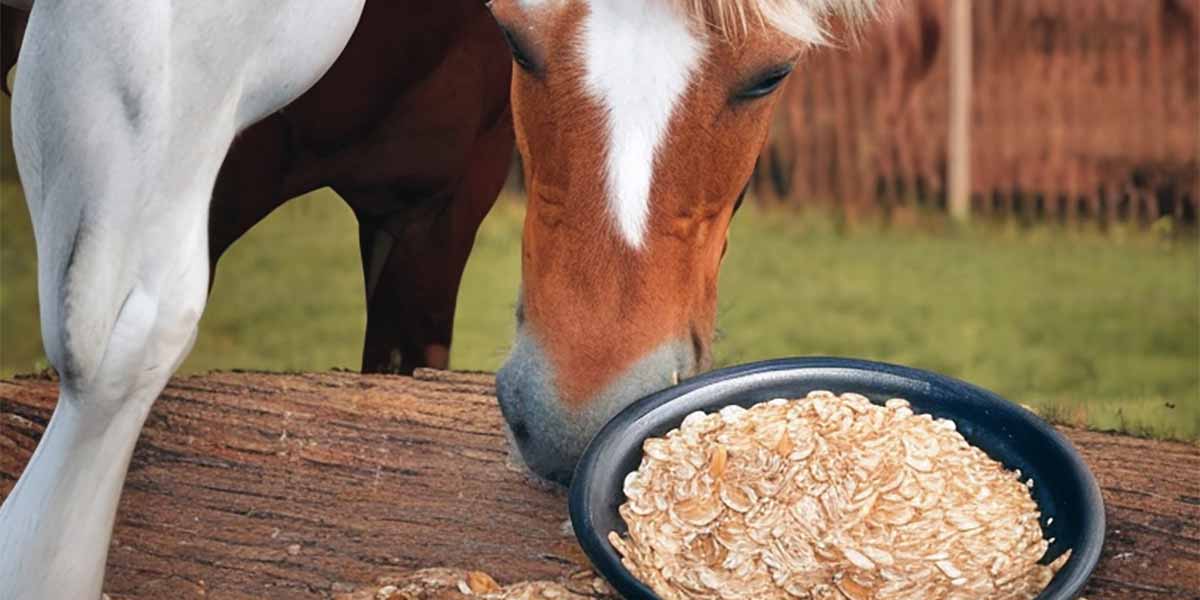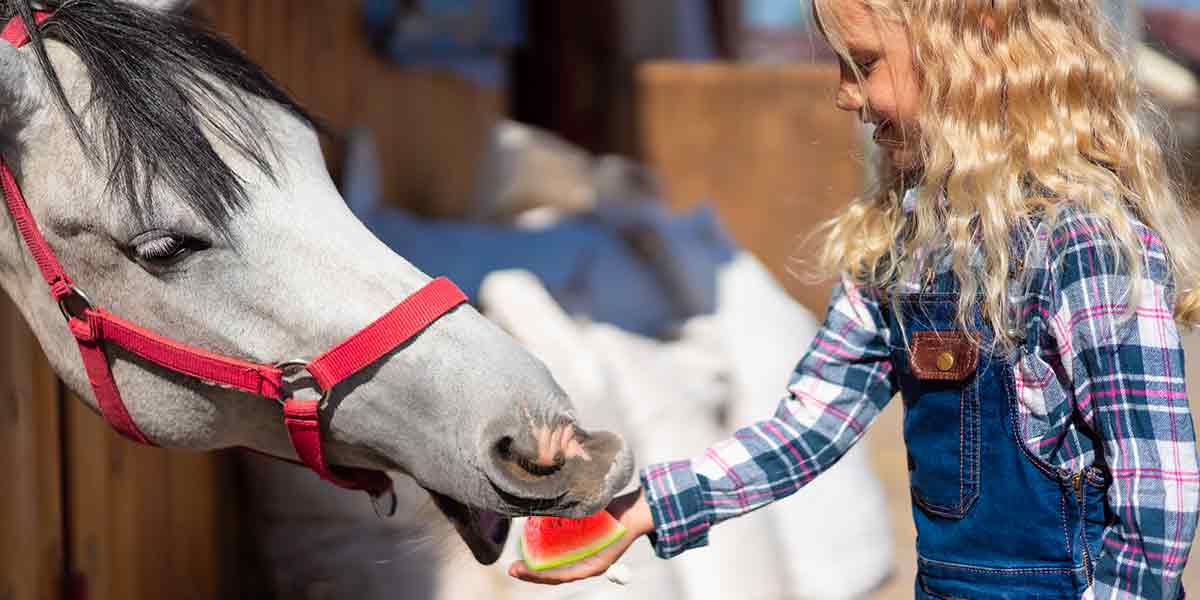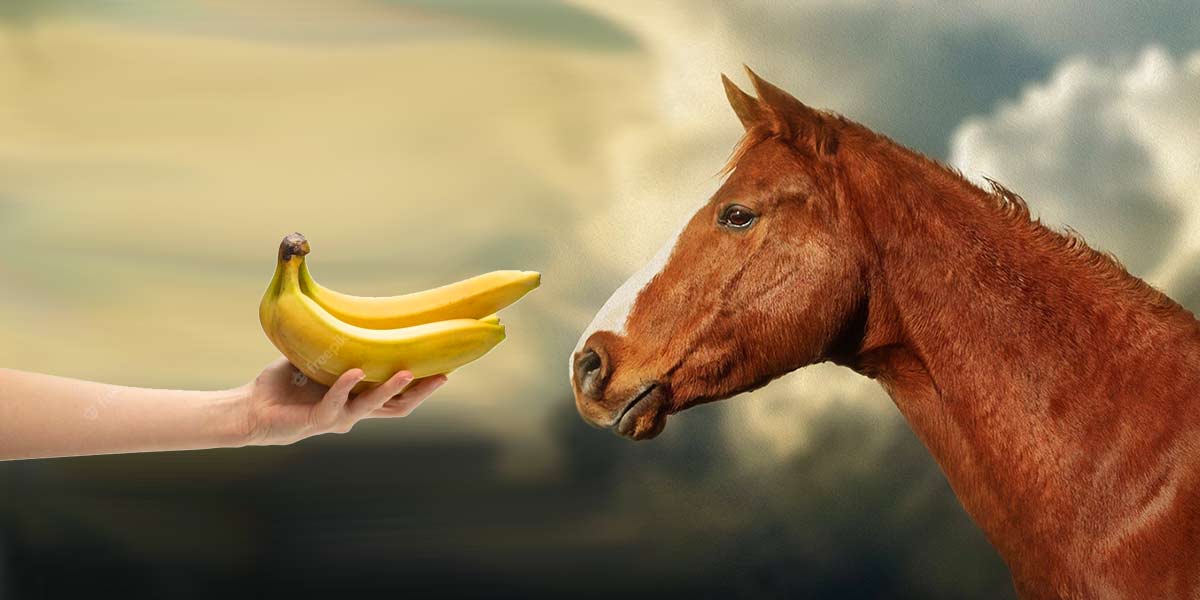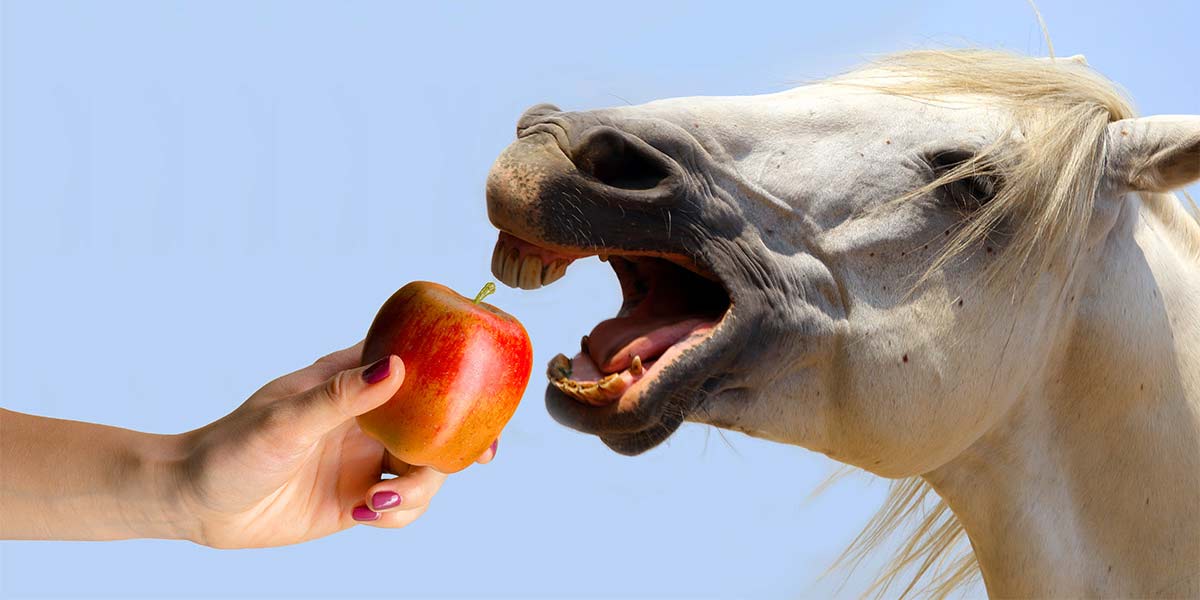One of the most top-of-mind questions you may have is, “Can I feed my horse oats?”. This brings up a myriad of other relevant questions too, such as, “What is the ideal feeding routine and diet plan for my horse?”. And “Are there specific supplements and forage options that I should be including in my horse’s nutrition plan?”
As an affiliate, we earn from qualifying purchases. We get commissions for purchases made through links in this website’s posts from Amazon and other third parties.
However, one question frequently arises is whether it is safe to feed horse oats. There’s no denying that oats are a popular grain choice for horses. The reason is that they are rich in fiber, energy, and a variety of essential nutrients.
But, can we feed our horses oats without compromising their health and digestion? In this blog post, we’ll explore the topic of horse oats in-depth. We will look at the pros and cons, and investigate whether this grain is a good choice for an equine’s daily diet. You will find some definitive answers on horse nutrition and feeding in this article.
Horse nutrition guide, what’s in oats?
Horse oats are a great source of dietary fiber and proteins, which can help to keep your horse healthy and balanced. They are also a good source of vitamins and minerals, including iron, zinc, and magnesium.
When feeding your horse oats, make sure to give them a balanced diet. Oats are high in carbohydrates, so it’s important to give them in combination with other types of feed and supplements. You can give your horse oats as a standalone feed, or you can add them to your horse’s diet as part of a balanced feed. You can also give your horse oats as a supplement to his hay or grain feed.
Horse oats can help to keep your horse healthy and balanced. They are a good source of dietary fiber, proteins, vitamins, and minerals. When fed on a balanced diet, oats can help to keep your horse healthy and balanced.
Overview of horse dietary requirements
If you are wondering “Can I feed my horse oats” the answer is: Yes and oats are an important part of its care and feeding. It’s important to understand the different dietary needs of horses and to provide them with the right food to maintain their health and prevent common health problems. This article will provide an overview of horse dietary requirements and explain how to provide your horse with the right feed.
Horses are omnivores, which means that they are able to digest and use a variety of different foods. They are able to digest grain, hay, and other forages, and they can also digest some types of supplements. In addition, horses are able to absorb nutrients from food more effectively if their diet is balanced and includes various types of food.
Horse dietary needs differ between age groups, breeds, and health conditions
Horses are classified into three main dietary groups: grazing horses, working horses, and race horses. Grazing horses are used for leisure activities, and their diet consists primarily of hay, grains, and pasture. Working horses are used for various purposes, including transportation, farming, and logging, and their diet includes more grains and hay than grazing horses. Race horses are used for competitions and their diet includes more nutrients and vitamins than either grazing or working horses.
It’s important to understand your horse’s dietary needs and to provide them with the right food to maintain their health and prevent common health problems. You can learn more about horse nutrition by reading articles like this or speaking with your veterinarian.
Can I feed my horse oats? Oat benefits for horse
Feed your horse oats. Oats are a popular grain for horses and for a good reason.
Horses are animals that require a balanced and nutritious diet to maintain optimum health. Oats are versatile and naturally nutritious feed grains that can be fed to horses in a variety of ways to meet their specific dietary needs.
Oats are a good source of vitamins and other nutritious ingredients
They are a rich source of dietary fiber, which helps to keep horses feeling full after eating. They are also a good source of vitamins and minerals, including vitamin C, vitamin B6, and vitamin E. When fed in moderation, oats can be a healthy part of a horse’s diet.
However, oats are not the only grain that can be fed to horses. There are many different types of grains that can be used to feed horses, and it is important to choose the right one for your horse’s dietary needs. Oats are a good choice for horses that are looking for a nutritious and balanced diet, but they are not the only option.
Oats should be fed in moderation
When choosing oats for your horse’s diet, it is important to select the right type and quantity. Oats can be fed in moderation as part of a horse’s diet, but they are not the only grain that should be included. In fact, oats are not a required component of a horse’s diet. There are many other grains that can be used to feed a horse, and it is important to choose the right one for their dietary needs.
Prepare oats properly
When feeding oats to your horse, it is important to prepare them properly. Make sure to measure the correct amount and feed them in a way that is comfortable for your horse. Feed oats as part of a balanced diet that includes other grains, hay, and supplements. Oats are a good choice for a nutritious and balanced diet, but they are not the only option. Feeding oats in moderation as part of a horse’s diet is a healthy option that can provide your horse with the nutrients they need to stay healthy and perform well.
Safety considerations: Recognize the risks associated with feeding oats to horses
Feeding oats to horses can be a dangerous and potentially harmful activity. Oats are grains and are high in gluten, which can cause allergic reactions in horses. These reactions can range from mild to life-threatening and can cause a variety of health problems, including laminitis and other bone disorders. In addition, oats can be a source of nutrients that are deficient in horses’ diets.
It’s important to be aware of the risks associated with feeding oats to horses. So, make sure that your horse’s diet is balanced and nutritious. Are you feeding your horse oats? Be sure to limit the amount and avoid feeding them in large quantities. Also, be sure to feed them in a way that is comfortable for your horse – usually in a small amount at a time. and
Ultimately, it’s up to you to make sure that your horse’s feed is safe and healthy. By being aware of the risks and taking precautions, you can minimize the potential for harm and keep your horse in good health.
Types of oats to feed your horse
When choosing oats for your horse’s diet, it is important to choose the right type. There are three types of oats that are commonly fed to horses: ground rolled, and flaked. Each type has its own unique nutritional benefits and should be fed in different ways to ensure the best nutritional outcome for your horse.
Ground oats
Ground oats are the most common type of oats fed to horses, and they are typically the least expensive. They are easy to prepare and store, and they are a good choice for horses that are not able to handle a lot of grain in their diet.
Rolled oats
Rolled oats are a more expensive option, but they offer a number of benefits over ground oats. They are softer and have a longer shelf life, making them a better choice for horses that are malnourished or have grain allergies.
Flaked oats
Flaked oats are the most expensive type of oats, but they offer the most nutritional benefits. They are high in fiber and protein, which can help to maintain a horse’s digestive health and overall health.
How to prepare oats for your horse
To prepare oats for your horse, you first need to cook them. You can cook oats in a pot on the stove, or you can put them in the oven. The important thing is to make sure that you cook them until they are soft and feel chewy when your horse will bite into them.
After you cook oats, you will need to store them. You can store them sealed in a tupper box in your refrigerator, or you can feed them fresh. You should feed oats fresh every day, or whenever your horse is hungry.
How to serve the oats to your horse
You should feed oats in a moist format. Oats are a high-fat grain It is essential to feed them in moderation and in conjunction with other healthy equine feedlot supplements.
Oats storage recommendation
After you cook the oats make sure you store them in a cool, dry place. You can store them in a sealed container in the refrigerator.
How much oats can you feed a horse?
Your horse’s health, age, and activity level will affect the amount of hay and grain it should receive.
According to our research, the University of Illinois insists that you can feed your horse 2 to 2.5 pounds of grain, like oats, or hay for every 100 pounds of its weight (on a daily basis). Additionally, your horse’s health, age, and activity level will play a big part in determining the type and amount of grain that he should receive. So, consulting your vet for your unique horse is a good decision before feeding it oats.
How often can I feed my horse oats?
Oats can be given to your horse two times a day. It
Oats are a common grain fed to horses and can be a valuable part of a balanced diet. However, they can also cause a number of problems if not managed properly. Here are some common oat-related issues and tips for addressing them.
Digestive issues
Oats can cause digestive problems in horses, including diarrhea, vomiting, and stomach upset. Is your horse prone to these problems? It’s important then to monitor his diet and switch to a different type of feed if necessary.
Allergies and weight gain
Oats can also cause allergies in horses, and they can be a source of weight gain. Is your horse struggling to maintain a healthy weight? it may be worth considering switching to a different type of feed! Or even supplementing his diet with hay or other forages.
Hay fever
Horses can also develop hay fever if they are exposed to a lot of oats in their diet. If this concerns you or your horse, it’s important to monitor his diet and switch to a different type of feed if necessary.
Managing care concerns: Addressing common oat-related issues with horses, such as digestive issues, allergies, and weight gain, offering effective solutions and prevention tips.
Ask the Vet – The do’s and don’ts of feeding oats to your horse! Video:
Conclusion
Overall, oats are a great source of nutrition for horses, and it’s always best to consult with your vet about the best feeding plan for your individual horse. Make sure to feed the right type and amount of oats and keep an eye on your horse’s health and weight to make sure they get the nourishment they need. With the right care and attention, oats can make a great addition to your horse’s diet.






